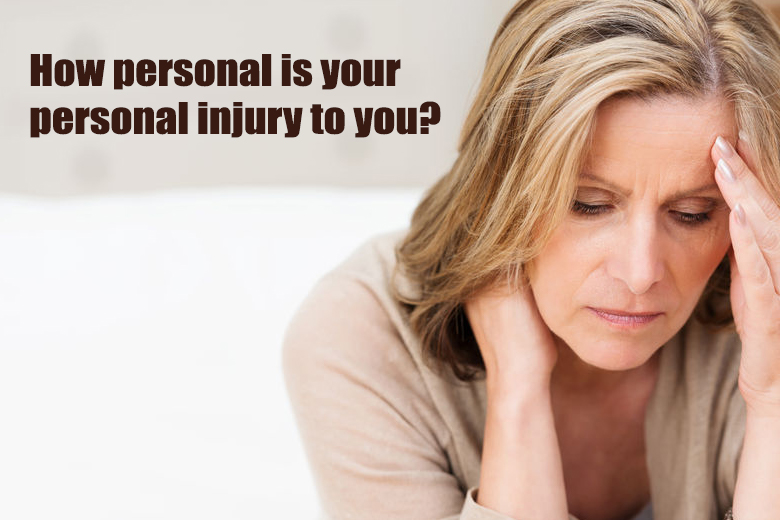So what exactly is a personal injury?
According to Webster’s dictionary, personal injury is a legal term describing an injury to one’s body, mind or emotions. Additionally, included are traumatic injuries to the spine (neck, mid-back and low-back) disc (bulges, herniation, and displacements), extremities (fractures or dislocations), head (traumatic brain injuries) and other body related injuries that affect one’s daily activities.
How personal can injuries become?
Studies have shown that personal injuries are more likely to lead to feelings of depression and emotional stress (Braff et al, 2019). In one study, participants were often found to expressed feelings of hopelessness due to excessive pain or disability that was directly related to their personal injury. Fortunately, in some cases, participants were optimistic, having said that they looked forward to the healing process despite limitations due to personal injury.
Here are some questions that may help one organize their thoughts surrounding this personal experience:
- What type of personal injury is it?
- What kind of accident caused it?
- How is it affecting your daily activities?
- How is it affecting your mood?
- Have you sought out medical or physical treatment?
- Have you sought out any mental health assistance to help you cope?
- How much discomfort (e.g. pain) are you experiencing and how often?
If you have answered yes, to any of these questions, then it may be time to
seek treatment through rehabilitation, intervention and possibly legal or mental counseling, to help start the coping process.
If unsure where to find help, it may start here: work-personal-injuryThere is an abundance of information and options for those negatively affected by a personal injury. The services are further specialized to include partnerships with attorneys, chiropractors, massage and physical therapists.
It is important to remember, that although the personal injury may be very individualized, it may also affect immediate family and friends. Don’t make it too personal that you forgo the very crucial and timely treatment to get you back to normal!
References:
Braaf, S., Ameratunga, S., Ponsford, J., Cameron, P., Collie, A., Harrison, J., Gabbe, B. (2019). Traumatic injury survivors’ perceptions of their future: A longitudinal qualitative study. Disability and Rehabilitation, 1-11. doi:10.1080/09638288.2019.1571116
Need to speak to someone immediately?
Call us today! (470) 299-1998

About the Author
Dr. Woodley Mardy-Davis is fellow-ship trained and triple board certified through The American Board of Anesthesiology and The American Board of Addiction Medicine. Board Certifications include Interventional Spine/Pain Medicine, Anesthesiology and Addiction Medicine. Dr. Davis specializes in nonsurgical and minimally invasive surgical treatments of the spine, and musculoskeletal system.
Dr. Davis’ skills are honed in the fluoroscopically and ultrasound guided procedures to intervene in the disorders of the spine and musculoskeletal system. Dr. Davis advocates a comprehensive, multidisciplinary approach to acute, chronic spine and pain disorders through the use of innovative diagnostic tools, treatment interventions and successful rehabilitation.

